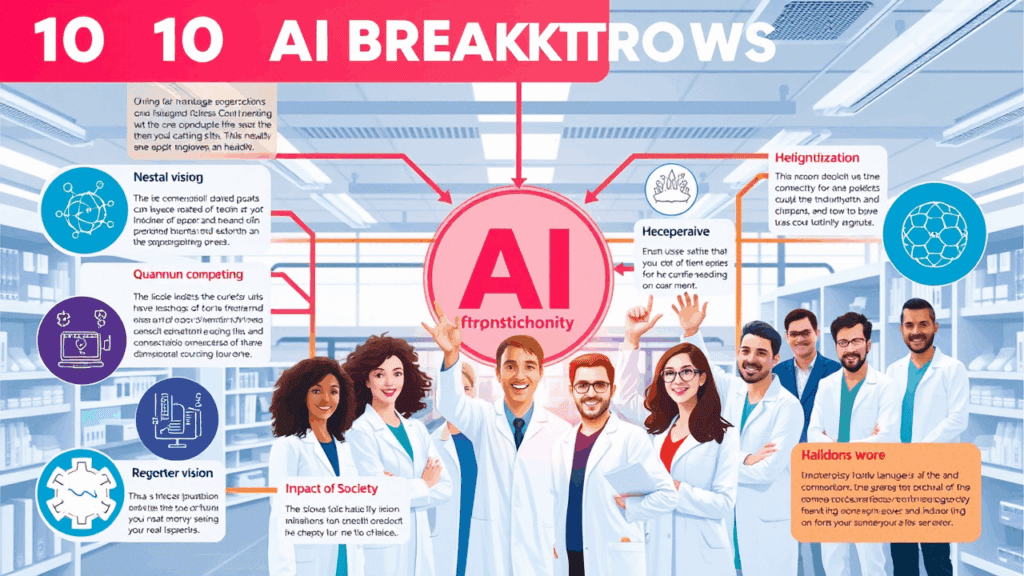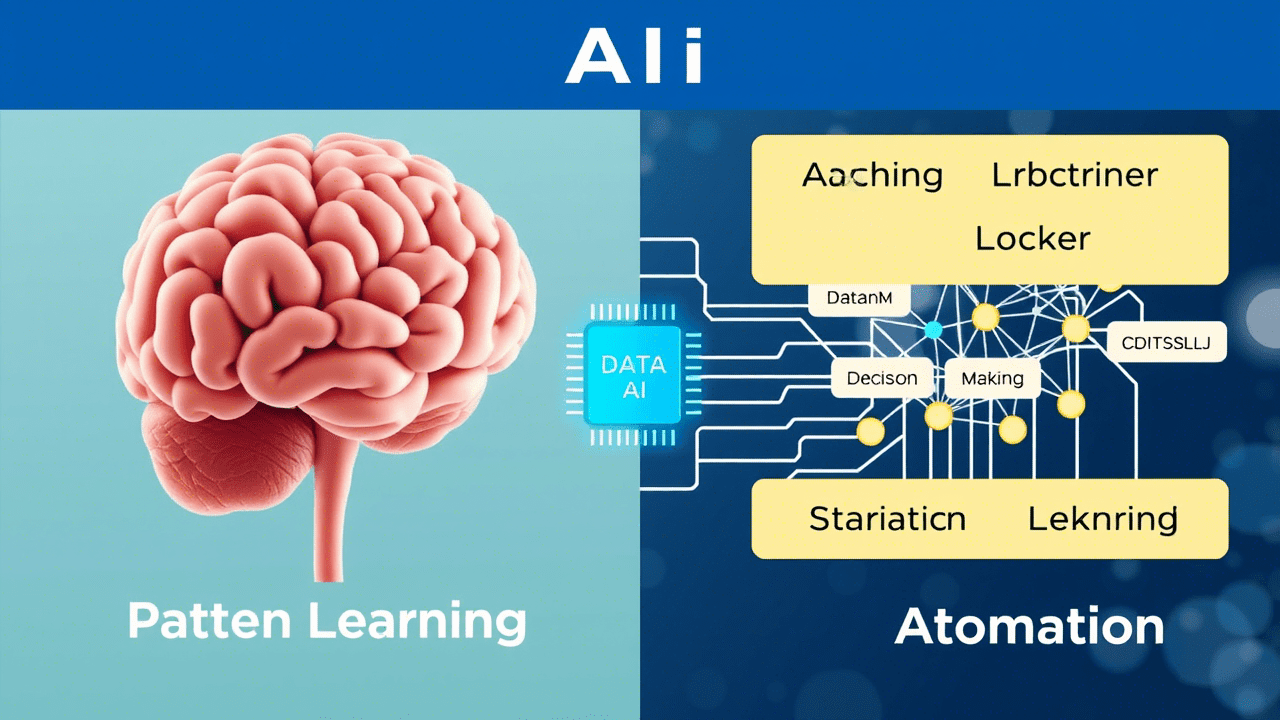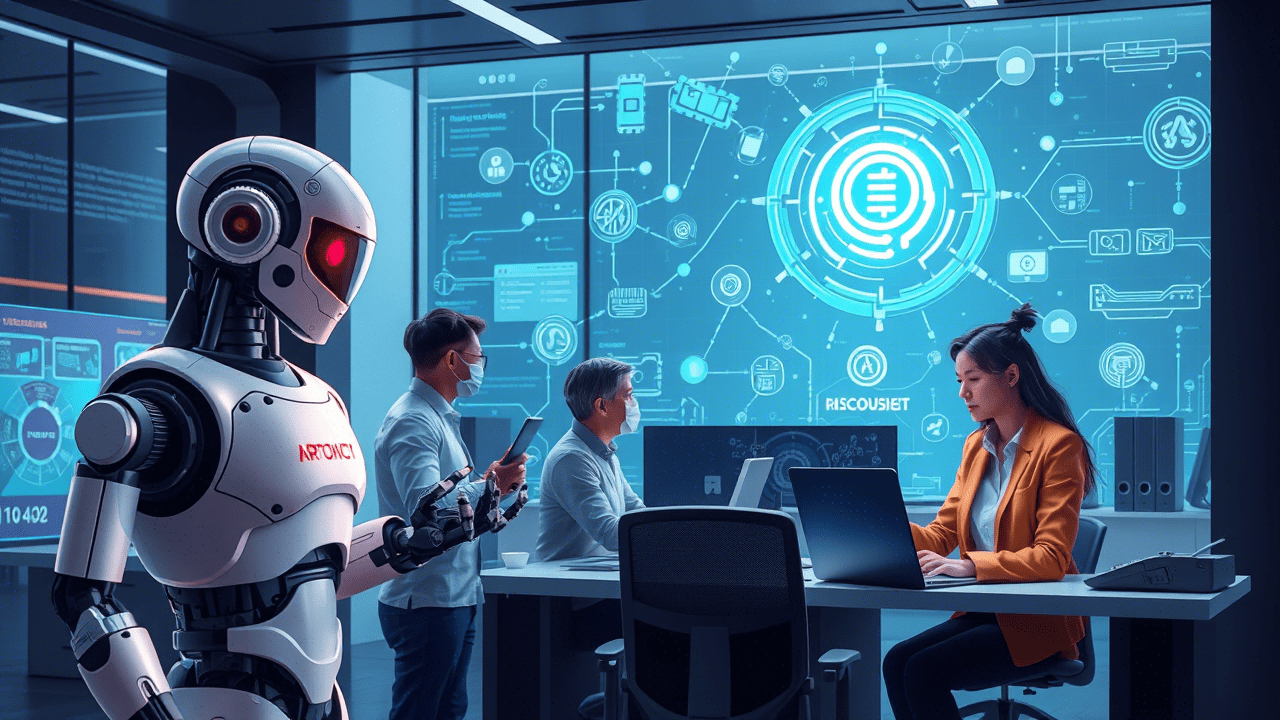Introduction: Why I’m Thrilled About the Future of AI
If you’d asked me a decade ago what artificial intelligence could do, I probably would’ve shrugged and mentioned something vague about robots or sci-fi movies. But today? AI is everywhere—in my phone, in my car, even in the way I write this blog post. It’s no longer just a concept; it’s a reality that’s reshaping industries, solving problems I didn’t think were solvable, and honestly, making my life easier in ways I couldn’t have imagined.
In this post, I want to share 10 AI breakthroughs that I believe are going to change everything—how we work, how we live, and even how we think about the future. These aren’t just abstract ideas; they’re innovations I’m seeing unfold right now, and trust me, they’re worth paying attention to. Let’s dive in!
1. Natural Language Processing Revolution
How I See Conversations with AI Evolving
I still remember the first time I interacted with an AI chatbot—it was clunky, awkward, and often frustrating. But now? The leaps in natural language processing (NLP) have been incredible. Tools like GPT-4 and others make conversations feel almost human. I’ve used them to draft emails, brainstorm ideas, and even explain complex topics to friends. Honestly, sometimes I forget I’m talking to a machine.
Real-Time Translation Breakthroughs
As someone who loves traveling but struggles with foreign languages, real-time translation feels like magic to me. Whether I’m chatting with a friend abroad or reading international news, platforms like Google Translate and Microsoft Translator are game-changers. They’re not perfect yet, but they’re getting closer every day—and that excites me.
Automated Content Creation and Summarization
Let’s be honest: writing can be exhausting. But lately, I’ve been using AI tools to help automate parts of my content creation process. From summarizing long reports to drafting social media posts, these tools save me hours of work. It doesn’t replace creativity—it enhances it. And frankly, that’s a relief.
2. Computer Vision Advancements
What I Think About Enhanced Facial Recognition
Facial recognition technology has come a long way since its early days. While I know there are valid concerns about privacy, I can’t deny how useful it’s become. For instance, I’ve seen it help find missing children and improve security systems. Still, I think it’s crucial we use it responsibly.
Autonomous Vehicles: My Take
Self-driving cars used to feel like science fiction, but now they seem inevitable. Companies like Tesla and Waymo are leading the charge, and I’m genuinely excited to see where this goes. Imagine never having to worry about parking or traffic again—I’d sign up for that in a heartbeat.
Medical Imaging Diagnostics
One of the most impactful uses of computer vision, in my opinion, is in healthcare. I’ve read stories of AI detecting cancer in X-rays faster and more accurately than human doctors. To me, that’s not just impressive—it’s life-changing. Early detection saves lives, plain and simple.
Augmented Reality Applications
When I first tried augmented reality (AR), I thought it was cool but kind of gimmicky. Now, though, I see its potential everywhere. Retailers are using AR to let customers “try on” clothes virtually, and educators are creating immersive learning experiences. I think we’re only scratching the surface here.
3. Artificial General Intelligence (AGI)
Multi-Task Learning Capabilities
This one blows my mind. Right now, most AI systems are specialists—they excel at one thing, like playing chess or recognizing faces. But AGI aims to create machines that can learn and adapt across multiple tasks, just like humans. I’m fascinated by the possibilities, especially when it comes to solving complex problems.
Improved Decision-Making in Complex Scenarios
Imagine having an assistant that helps you make smarter decisions—whether it’s managing finances, planning logistics, or responding to emergencies. That’s what AGI promises, and I think it could revolutionize industries like finance, disaster response, and beyond.
Ethical Considerations and Safeguards
Of course, I’d be lying if I said I wasn’t concerned about AGI. With great power comes great responsibility, right? I believe it’s up to us—developers, regulators, and users—to ensure AGI aligns with human values. Transparency and accountability will be key.
4. Quantum Computing in AI
Exponential Increase in Processing Power
Quantum computing is still in its infancy, but I’m already geeking out about it. The idea of exponentially faster processing power opens doors to solving problems that currently stump us. I can’t wait to see what happens when quantum meets AI.
Solving Previously Intractable Problems
From drug discovery to climate modeling, quantum-enhanced AI could tackle challenges we’ve been stuck on for years. Personally, I’m keeping an eye on how this impacts fields like medicine and sustainability.
Implications for Cryptography and Security
Here’s where I get a little nervous. Quantum computing threatens current encryption methods, which means cybersecurity needs a major upgrade. I hope researchers stay ahead of the curve on this one—it’s too important to ignore.
5. AI in Healthcare
Personalized Treatment Plans
One of the coolest things I’ve learned recently is how AI can create personalized treatment plans based on genetics, lifestyle, and medical history. As someone who values tailored solutions, I think this is a game-changer for healthcare.
Used to take years to discover new drugs, but now AI is speeding up the process dramatically. I’ve read about AI identifying promising compounds in weeks instead of months. To me, that’s incredible—and it gives me hope for tackling diseases like Alzheimer’s and cancer.
Early Disease Detection
Early detection is everything when it comes to health, and AI is proving to be a lifesaver here. I’ve seen examples of systems spotting early warning signs of conditions like diabetes and heart disease. It’s inspiring—and reassuring—to know that technology is working to keep us healthier.
Robotic Surgery Advancements
Robotic surgery fascinates me. Watching videos of surgeons using AI-powered tools to perform delicate procedures makes me realize how far we’ve come. Less invasive surgeries mean faster recoveries, and that’s a win-win in my book.
6. Robotics and Automation
Advanced Humanoid Robots
Humanoid robots like Boston Dynamics’ Atlas amaze me. Their agility and intelligence feel like something out of a movie, but they’re real—and they’re getting better every day. I can’t wait to see how they’ll assist in caregiving, customer service, and hazardous environments.
Industrial Automation Revolution
Factories are becoming smarter thanks to robotics and AI. I’ve seen firsthand how automation improves efficiency and reduces costs. It’s transforming industries like manufacturing and agriculture, and I think it’s just the beginning.
AI-Powered Prosthetics
AI-powered prosthetics give people back their independence, and that touches my heart. Seeing someone control an artificial limb intuitively through neural signals is nothing short of miraculous. It’s proof that technology can truly change lives.
7. AI in Climate Change and Environmental Protection
Improved Climate Modeling and Predictions
Climate change keeps me up at night, but AI gives me hope. By analyzing massive datasets, AI models can predict extreme weather events and help us prepare. To me, that’s a step toward protecting our planet.
Optimized Renewable Energy Systems
Renewable energy is the future, and AI is helping optimize it. Smart grids balance supply and demand, reducing waste and increasing efficiency. I love that we’re finding smarter ways to harness solar and wind power.
Smart Resource Management
Water conservation, waste reduction, and air quality monitoring are all areas where AI shines. I think smart cities powered by AI will play a huge role in creating sustainable urban environments.
8. Neuromorphic Computing
Brain-Like Processing Capabilities
Neuromorphic computing intrigues me because it mimics the human brain. These systems are energy-efficient and great at pattern recognition, which could lead to breakthroughs in edge computing and IoT devices. I’m eager to see how this evolves.
Energy-Efficient AI Systems
Traditional AI consumes a ton of energy, but neuromorphic computing slashes that drastically. To me, this is a big deal because it makes AI accessible in remote areas and extends battery life for devices.
Enhanced Pattern Recognition
The ability to recognize subtle patterns in noisy data is another reason I’m excited about neuromorphic computing. It could revolutionize fields like cybersecurity and autonomous navigation.
9. Explainable AI (XAI)
Transparency in AI Decision-Making
Explainable AI is a breath of fresh air. Knowing why an algorithm made a decision builds trust, and that’s something I value deeply. If I don’t understand how AI works, I’m less likely to trust it—and that applies to everyone.
Building Trust in AI Systems
Trust is essential for adoption, especially in critical sectors like healthcare and law enforcement. XAI ensures transparency, and I think that’s vital for widespread acceptance.
Regulatory Compliance and Accountability
Regulators are demanding more transparency, and I support that. XAI helps organizations comply with laws and demonstrate accountability. To me, that’s a step in the right direction.
10. AI-Human Collaboration
Augmented Intelligence in the Workplace
AI isn’t replacing humans—it’s augmenting us. I’ve seen firsthand how AI tools empower workers to focus on higher-value activities. Sales teams use insights to close deals, designers iterate faster, and analysts uncover trends quicker. It’s a partnership, not a replacement.
Personalized Education and Skill Development
Platforms like Duolingo and Coursera use AI to personalize lessons, and I think that’s brilliant. Everyone learns differently, and AI adapts to those differences. It’s a win for education.
Creative Partnerships Between Humans and AI
AI collaborating with artists, musicians, and writers inspires me. Together, humans and machines produce works that neither could achieve alone. It’s a blend of logic and imagination, and I think it’s beautiful.
Conclusion: Why I’m Optimistic About the Future
These 10 AI breakthroughs fill me with hope. They’re not just technological advancements—they’re opportunities to solve some of humanity’s biggest challenges. From curing diseases to combating climate change, AI has the potential to make the world a better place.
Am I worried about ethics and misuse? Absolutely. But I believe that if we approach AI responsibly, we can harness its power for good. So, let’s embrace the future together—one breakthrough at a time.
💡 Want to Dive Deeper Into AI Innovations?
If you’re as excited about AI as I am, check out Best AI Tools for Business, Marketing, and Automation in 2025.
Let’s build a brighter tomorrow—together! 🚀





